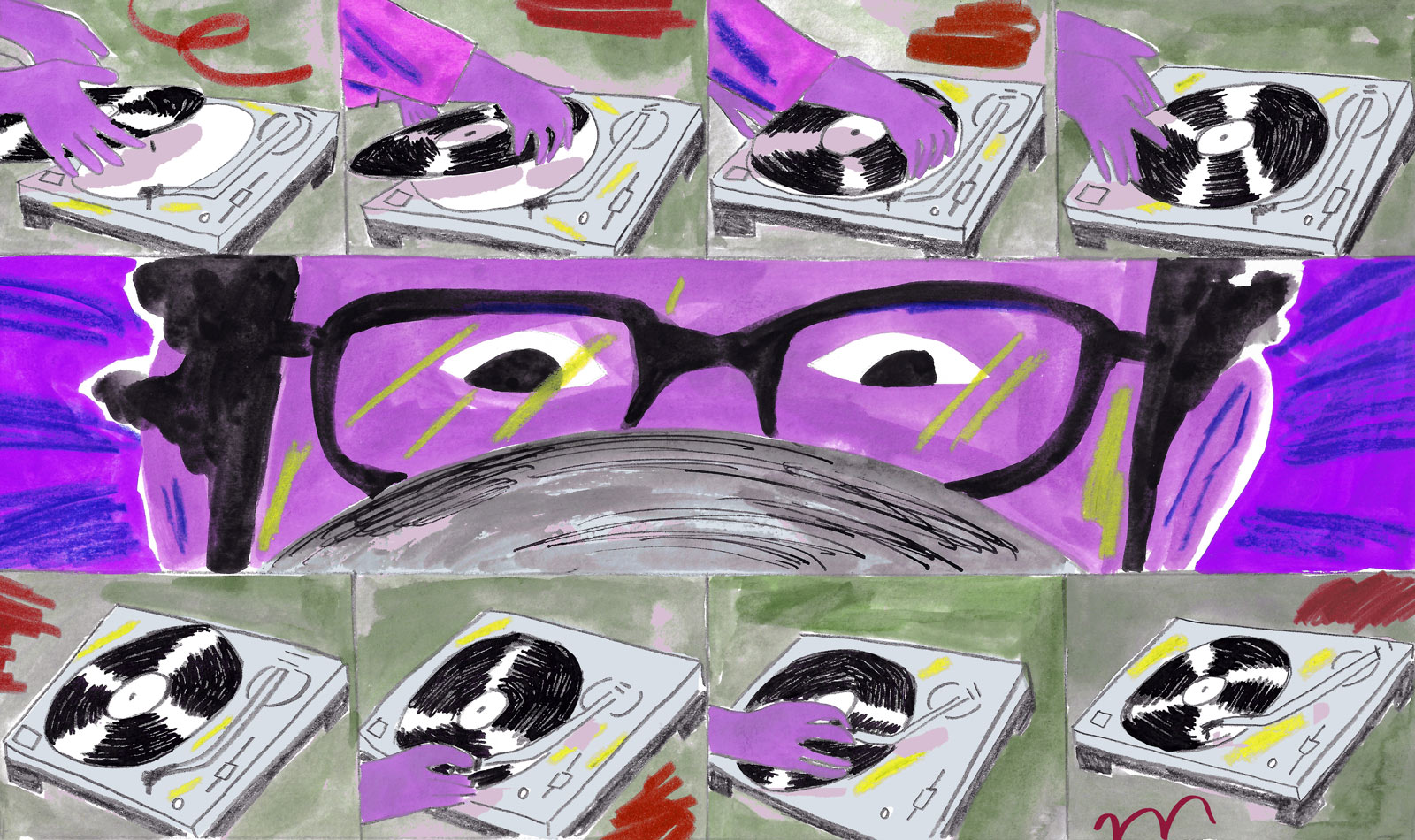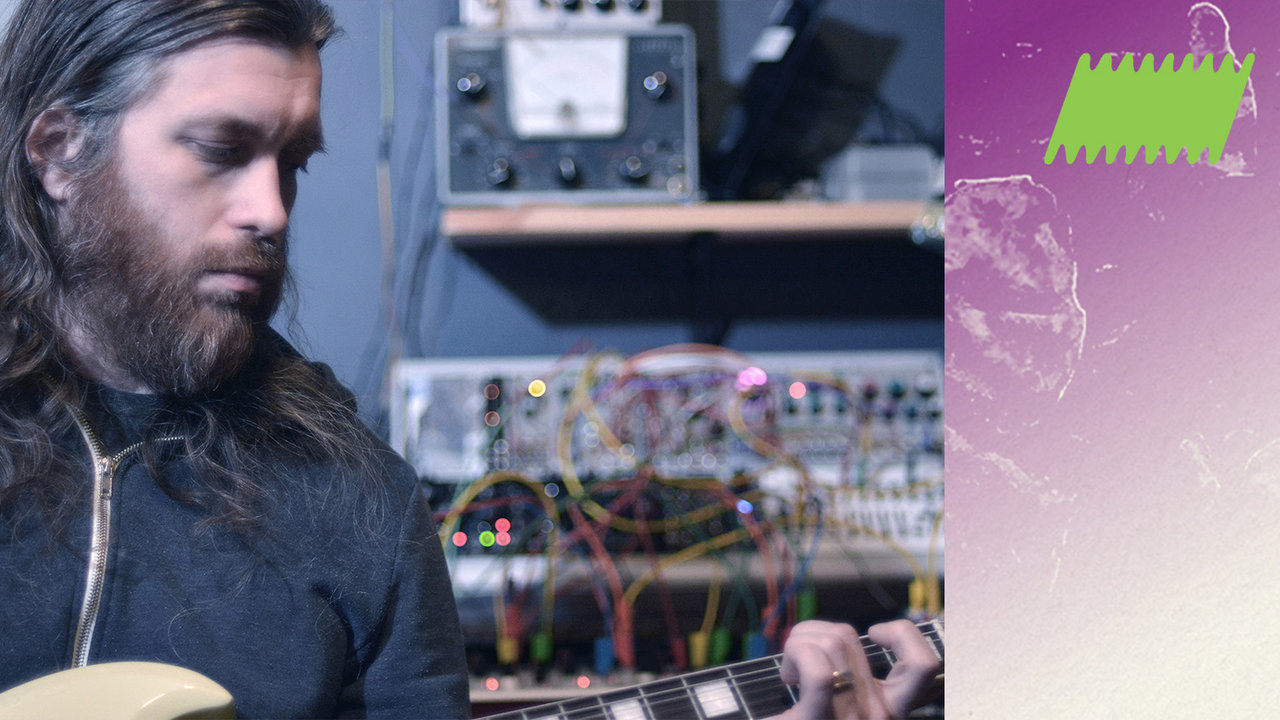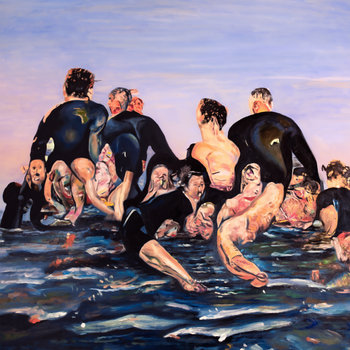
It’s normally a quick 45-minute drive from Seattle to Tacoma, Washington, but on that day, it felt like an eternity. It was hot, and not only did my friend’s car not have air conditioning, the cassette player was broken, so we were forced to endure staticky, classic rock guitar riffs on the radio. As traffic ground to a halt, a puff of toxic truck exhaust invaded our open windows even more forcefully than the Garth Brooks song that blasted from the car next to us. I was sweaty, uncomfortable, and anxious, and it wasn’t just from the external elements. My primary anxiety stemmed from the fact that I was clutching a 7-inch record in my lap, praying that it wouldn’t warp from the heat or worse, crack from the unnecessary pressure I applied in an effort to keep it safe.
In 1992, my two favorite bands, Pixies and Jane’s Addiction, had both recently broken up. I was 20 years old and already through with grunge and its inferior, derivative offshoots. While I loved dissonant guitar bands like Sonic Youth and Fugazi, I was in desperate need of a new favorite. When I heard the San Diego band Drive Like Jehu, they immediately filled that important void with a debut album full of tense, urgent guitar rock that felt at once wildly innovative and unpretentious.
On weekends, my friends and I often left our college campus to explore the many great independent record shops in Seattle and Tacoma, where we lived. That afternoon, while flipping through a store’s 7-inch section, a single jumped out at me with a cover that was simply a black-and-white, close-up photograph of some tangled guitar strings. Toward the top right corner were my three favorite words in chunky, block lettering: Drive Like Jehu. I snatched the single with such fervor that I feared I might be viewed as a shoplifter who was about to make a fast break for the door. I took a breath, tried to act calm, and flipped the single over to learn that it contained two songs I’d never heard: “Bullet Train To Vegas” and “Hand Over Fist.” The rectangular Merge Records logo also excited me: a band-owned, independent label releasing a single by my favorite band was enough to give any record nerd a mild panic attack in 1992.




Vinyl LP


The hours that followed weren’t easy. We had more stores to visit, but I’d already found the crown jewel and all I wanted to do was go home and listen to it. As I continued to flip aimlessly through records and CDs at other shops, I tried to imagine what the Drive Like Jehu songs sounded like. They were likely short due to the limitations of the 7-inch format. Were they outtakes from their existing album? Or perhaps music from a forthcoming new album? Alas, there was no internet to instantly answer my internal questions about the mysterious band; no cell phone to call or text a friend who might know more.
The traffic on I-5 wasn’t letting up on our way home, and as the blue and white diamond-patterned roof of the Tacoma Dome came into view, my friends argued over which fast food restaurant we should hit. Then someone suggested a quick Target run. My anxiety increased with each proposed detour as I calculated the minutes each stop would add to the amount of time I couldn’t listen to my new record. As the names of restaurants and businesses flew through the heated air, I reached my boiling point and shouted, “Can we just go home? It’s hot, and I really want to hear this fucking record!” The car became silent. As we inched another few feet, I found the sympathetic eyes of my friends, who finally understood my plight.

When I arrived home, the speakers made a comforting, bass-y, static sound as I switched the receiver from AUX to PHONO. I made sure the turntable was set to 45 RPM—I didn’t want the disappointment of thinking my favorite band’s new song was sludgy by accidentally playing it at 33—and dropped the needle. I loved that the song didn’t start immediately like I was used to from my CD player. Instead, I had to wait a final few seconds for the song to begin. Those few seconds, for me—a 20-year-old in the peak stage of his essential musical discovery years—were easily the most exciting moments of my day. Soon I would hear the song, but there was nothing more exciting than being about to hear the song.
Within seconds, Drive Like Jehu was in my house. I’d never seen a picture of the band, so I imagined four faceless people performing in the tight confines of my living room, hemmed in by cumbersome amps and drums. The record sounded and felt like it was recorded live with the band members in close proximity to one another, and as I turned up the volume, I felt a hot sting of fear growing in my stomach. I’d felt this in my stomach before—more often at live shows than while listening to a record—and even though it presented as dark and melancholy, I convinced myself that it was positive; a symptom that only occurred when I heard or witnessed something so exciting that my body didn’t know how to physically process it.


Vinyl LP


“Bullet Train To Vegas” and “Hand Over Fist” were somehow even more anxious and driving than anything on the album that preceded them. Rick Froberg’s vocals were more melodic than the all-out screams I expected, and inasmuch, they brought an added stickiness to the band’s percussive, chugging blasts. I loved 1992’s self-titled album for its rowdy, youthful experimentation, and I later loved 1994’s patient and wandering Yank Crime, but there was something special about these two songs that appeared in the middle of Drive Like Jehu’s short career—roughly recorded documents of a band at its pinnacle.
I was obsessed with the music, but I equally loved the scarcity of my new record, the feeling that I had something that nobody else had. As a child, I feared that if I ever scratched, broke or lost one of my records, I’d never hear it again. That fear dissipated in the CD age, especially on my college campus, where thousands of students shared similar collections. But with this single, I reverted back to my childhood fear in the best way: “Bullet Train to Vegas” b/w “Hand Over Fist” felt like a limited-edition pressing of one single that was made specifically for me.
Drive Like Jehu’s next and final album, Yank Crime, didn’t include either of the songs on this single, and, as much as I wanted the access and reliability of these songs on CD, I understood that they were meant to exist on their own—a stand-alone body of work whose brevity is far eclipsed by its intensity; the band’s masterwork, forever embodied on the least popular, least reliable format.
Looking back, I’m glad that I couldn’t receive the instant gratification that I craved that day. I’ve grown accustomed to instantly hearing anything anywhere, anytime, which can feel miraculous and immensely rewarding. It can also cheapen the listening experience. In my case, those few hours of unfulfilled, stressful speculation back in 1992 created a tension that was well worth the wait. Other times, my investment—whether it was money or time—created an expectation that was sometimes met, other times not, but either way, it was an exciting process that’s now been largely erased.
A few months after that afternoon, I found another copy of the Drive Like Jehu 7-inch, which I bought without hesitation and excitedly gave away to a friend. Sure, it was a gift, but it was also a way to ensure that another copy existed safely in my orbit; an insurance policy on a record that only cost $3.99, but at the time, felt scarce, irreplaceable, and infinitely priceless.
Nabil Ayers is the author of the memoir, My Life in the Sunshine, host of the upcoming Identified podcast, and president of Beggars Group US. @nabilayers www.nabilayers.com







